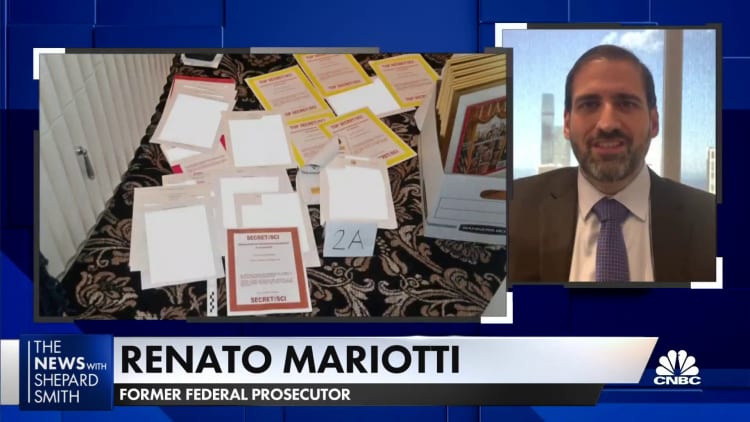A federal judge in Florida said at a hearing Thursday that she will unseal a more detailed inventory of items FBI agents seized in the Aug. 8 raid of former President Donald Trump‘s Mar-a-Lago residence.
Judge Aileen Cannon also will make public a status report by the investigation team probing the removal of documents from the White House when Trump left office in early 2021.
But Cannon ended the hearing without ruling on a pending request by Trump to appoint an independent watchdog, known as a special master, who would review government documents seized by the FBI before the DOJ would be allowed to use the records to advance its probe.
Cannon said she will rule later on that request, which Trump made in a lawsuit filed last month in U.S. District Court for the Southern District of Florida.
Trump’s lawyers had requested a more detailed list of documents taken from Mar-a-Lago than the less revealing inventory they have previously received from investigators.
The Department of Justice is opposing the call for a special master, arguing that it will unjustifiably delay its criminal investigation.
The DOJ also has said that a review of the documents by a team of internal department watchdogs already has completed its own review and identified some records that would potentially be exempt from use in the investigation because they are protected by the attorney-client privilege.
In a separate ruling Thursday, Cannon said she will keep seal a status report on that review by the DOJ’s so-called filter team.
Jay Bratt, the DOJ’s top counterintelligence official, at the hearing also argued that Trump is not entitled to a review by a special master of the documents because “he is no longer the president.”
“And because he’s no longer the president he had no right to those documents … that ends the analysis,” Brat said.
Special masters, often drawn from the ranks of retired judges, are typically appointed in cases where there is a risk that some of the records seized by law enforcement should be barred from use in an investigation because they are protected by the attorney-client privilege.
Trump’s lawyers however, argue that some of the records could be protected by executive privilege that would result from him having been president at the time they were created.
In a court filing Tuesday, the DOJ revealed that more than 100 classified documents were found at Mar-a-Lago, the private club in Palm Beach, Florida, where Trump maintains a residence, during the Aug. 8 raid.

That discovery came two months after Trump’s lawyers, in response to a federal grand jury subpoena, provided the DOJ with a sworn certification that a search of Trump’s living quarters and office had not found records that were marked classified.
Tuesday’s filing said there is evidence that government records including the ones marked classified were likely concealed and removed from a storage room at that residence in an effort to “obstruct the government’s investigation.”
Authorities have said that NARA tried for about a year after Trump left the White House in January 2021 to obtain documents it suspected were still in his possession. When Trump did give up 15 boxes of records from Mar-a-Lago earlier this year, they were found to contain highly classified material, leading to the opening of the DOJ probe, and eventually the Aug. 8 raid.
Trump has argued that he declassified the records before leaving office. But whether or not the documents remain classified is irrelevant under the criminal laws that the DOJ is eyeing in the case, which includes the espionage statute and obstruction of justice.
By law, White House records must be turned over to the National Archives and Records Administration when a president leaves office.
Trump lawyer Jim Trusty during Thursday’s hearing repeated an analogy that has become popular among defenders of the former president.
“We’ve characterized it at times as an overdue-library-book scenario where there’s a dispute — not even a dispute — but ongoing negotiations with [the National Archives] that has suddenly been transformed into a criminal investigation,” Trusty said, according to NBC News.
Trusty’s claim omitted mention of a grand jury subpoena issued for the documents.



Comments